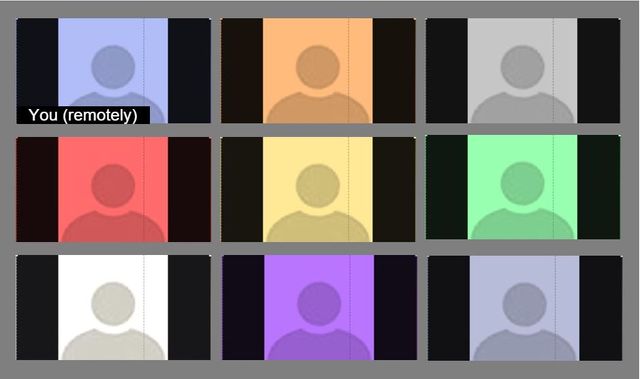The UK’s Worker Protection Act came into force last October; now is the time for all employers to act.
Is the annual pre-party email ready to go? That carefully worded reminder to staff about drinking in moderation? Expected standards of conduct in the party environment which is, after all, ‘an extension of the workplace’'? And not forgetting the clear warning that inappropriate behaviour “may result in disciplinary action up to and including dismissal...”?
Perhaps the festivities will even be preceded by a team meeting to review a profitable year’s work, with a cautionary pep talk from the boss emphasising how far the pending bonhomie and conviviality can go?
Boxes ticked? But it’s not enough.
There are (very human) obstacles which go deeper. For example:
- A lack of self-awareness of near epidemic proportions (which is just about to be compounded by alcohol consumption);
- A enormous capacity for self-justification; and
- A small but powerful cohort people who don't care enough about others' wellbeing to moderate their conduct (unless there's a real risk to themselves)...
In my post-Weinstein training sessions on 'working with respect' I have been struck by how strongly people denounce disrespectful, inappropriate workplace behaviour. I wonder then, why are so many people complaining? It is always the behaviour of others that we are so crystal clear about, that we instantly recognise as potentially problematic. It's much tougher to be truly aware of our own.
‘Fish don’t talk about water’. We don’t notice our ‘normal’. If we are okay with the way things are (the way we are) ... well, that means it's okay, doesn't it? So why would we focus on it? And if we have enough affirmation from others that the way we do things is acceptable – or at least that it’s not going to be challenged - it’s not hard to see how it becomes a pattern - a culture.
But sometimes cultures or individual behaviours can be harmful if unchecked. Is there someone in your organisation who gets away with it because that’s ‘just how they are’? Or – worse – because they are a rainmaker or otherwise powerful? Perhaps it's their aggressive tone which undermines others? Or a propensity for ‘good natured ribbing’ which crosses a line... Or, in our party scene, the hand brushing a knee.... the outspoken opinion as the drinks flow... the 'friendly' arm around the shoulder.
But, party or no party, just because someone’s choosing not to notice their 'water', or is allowed to get away with it for whatever reason, that doesn’t mean someone else isn’t drowning.
Shaming people is a blunt instrument for bringing about change. We need to raise awareness - hold up a mirror - help people work harder to notice how behaviours might be having a negative impact on others, to take responsibility, to care, and stop doing it.
We can all get better at this. It's not about 'bad' people. Try to think of something you have said or done in the last fortnight which might have had a negative impact on someone else (at work or home). I’m not suggesting you intended it, or anything as extreme as bullying or harassment. But there will be something, somewhere. I’m into double figures – and I think about this stuff for a living…
Related Articles

Return (verb): to come or go back to a place or person

Do you know how your people are?

Unconscious bias training: Does it work?


Happy hour? A conversation about alcohol and work – culture, risk and belonging
From post-deal drinks to client events and team celebrations, alcohol is woven into workplace culture. Yet when something goes wrong, it’s rarely seen as ‘just a drink’.
With new duties on employers to prevent sexual harassment, and growing attention on workplace risk and inclusion, it’s time to take a more intentional look at how alcohol shapes workplace culture – and the risks it carries.
This short, focused webinar will explore:
• How alcohol contributes to conduct, harassment and reputational risk
• The assumptions we make about what’s normal, social or expected
• How alcohol intersects with inclusion, wellbeing and boundaries
• What to think about when conducting risk assessments and looking at policies
• Practical steps to build positive connection while protecting what matters
Speakers:
Helen Dallimore
Head of Training, Byrne Dean
An experienced facilitator, trainer and former employment lawyer, Helen works with organisations to strengthen leadership capability and embed respectful workplace behaviours. She brings particular expertise in creating inclusive cultures where people feel safe, respected and able to thrive.
Cicilia Wan
Principal Consultant, Byrne Dean
A former employment lawyer and experienced Headof Employee Relations in global financial services, Cicilia has seen first-hand how alcohol canaffect conduct at work. She brings deep expertise in leadership, culture and managing people risk.
Steven McCann
Founder and Director, MCG Consulting
A leading voice in workplace addiction and recovery inclusion, Steven advises organisations on addiction awareness, recovery-informed culture and social mobility. He has spoken at the Bank of England and works regularly with law societies, the Legal Services Board and institutions across law, finance and corporate sectors.


HR Magazine: Half of UK workers faced toxic workplaces
Head of Resolution Zoe Wigan comments on speaking up and creating psychological safety.


HR Magazine: How to manage political polarisation at work
Matt Dean comments as recent events in America have intensified the discussion around polarisation.




